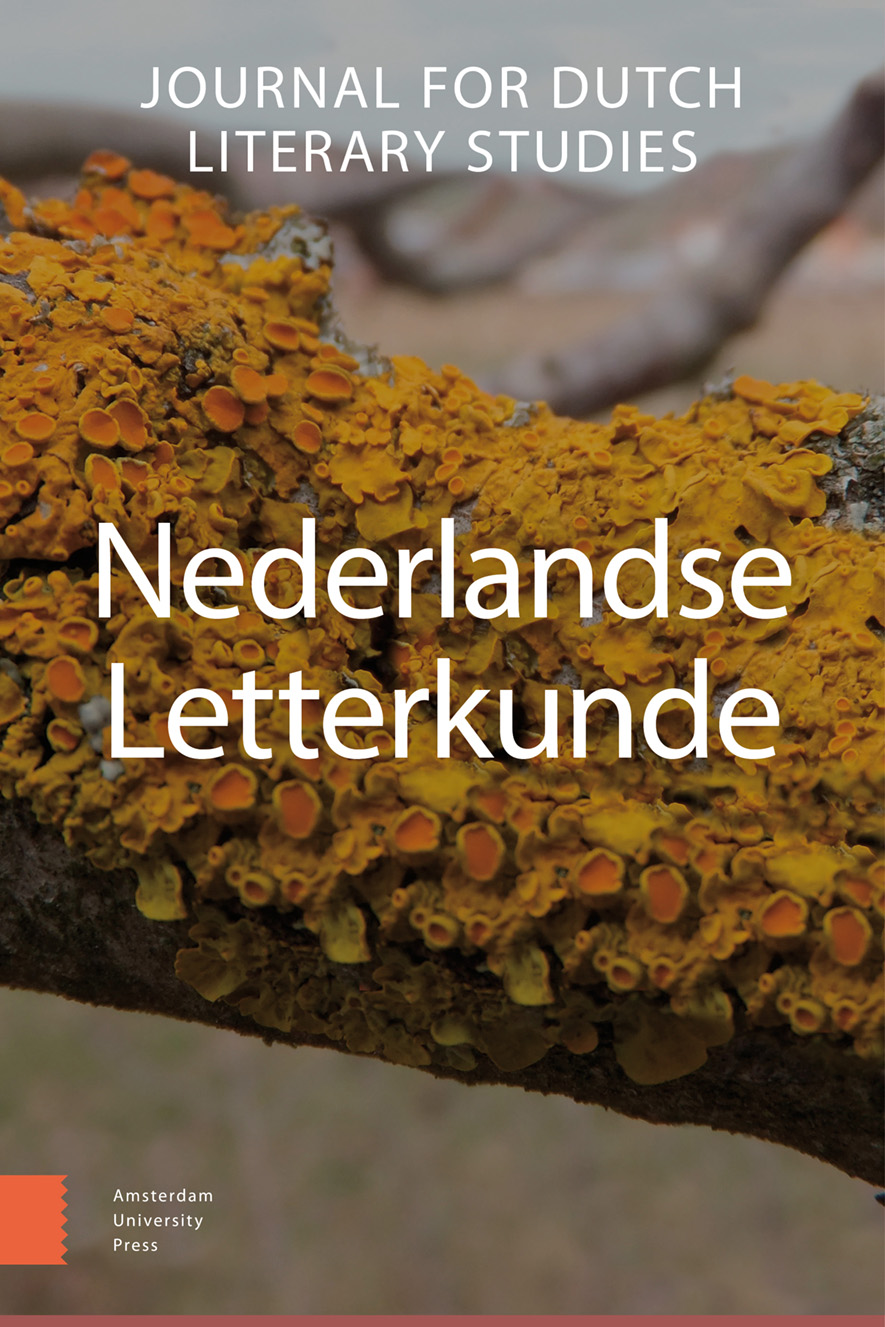- Home
- A-Z Publicaties
- Nederlandse Letterkunde
- Previous Issues
- Volume 26, Issue 1, 2021
Nederlandse Letterkunde - Volume 26, Issue 1, 2021
Volume 26, Issue 1, 2021
-
-
oa Lucebert over Arp
Meer MinderDoor Anja de FeijterAbstract On three occasions in his literary career the poet and painter Lucebert (1924-1994) has engaged in writing poetry on the sculptor, painter and poet Hans Arp (1886-1966). One particular poem, ‘arp’, dates from 1950 and was designed to be a part of a series of poems, ‘de getekende naam’, on contemporary artists. The authorship of this poem has been questioned in the 1980s as a result of a publication on the poetry Read More
-
-
-
oa Semantisch verraad
Meer MinderDoor Bram LambrechtAbstract This article offers an in-depth reading of the poetic cycle Het graf van Pernath (1977; Pernath’s Tomb) by the Flemish author and novelist Hugo Claus (1929-2008). The cycle is only one of the many tributes to the prominent post-experimental Flemish poet Hugues C. Pernath, who died in 1975. First, the present article shows how Het graf van Pernath displays a complex attitude towards the genre tradition of the tombea Read More
-
-
-
oa ‘Jongens waren het, maar geen aardige jongens’
Meer MinderDoor Anne van der WerfAbstract The novels Gimmick! (1989) by Joost Zwagerman (1963-2015) and Trainspotting (1993) by Irvine Welsh (1958-) depict two generations that dominated the societal scene during the 1980s, respectively the snobbish yuppies and the desperate ‘no future kids’. This article examines the literary representation of these generations on the basis of two questions: how does the concept of generation take shape within these Read More
-
Volumes & issues
Most Read This Month
Article
content/journals/13845829
Journal
10
5
false
nl


